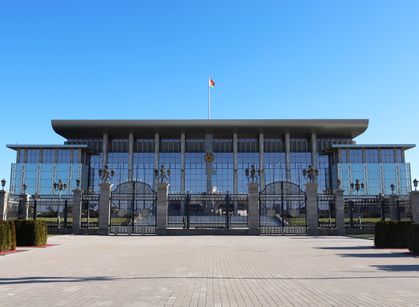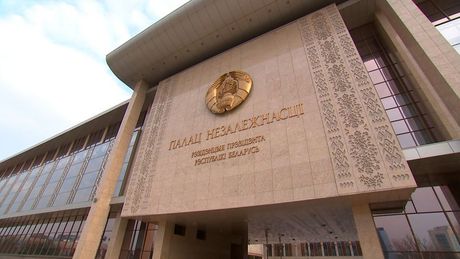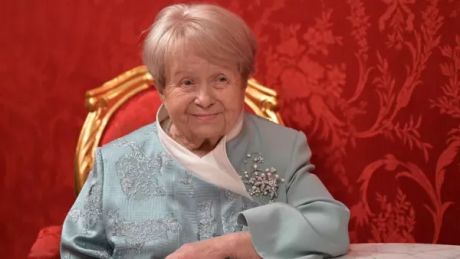“The dictatorship of law is the only dictatorship possible in the country”. Belarus marks 30 years since its president’s first inauguration
10:00, 20 July
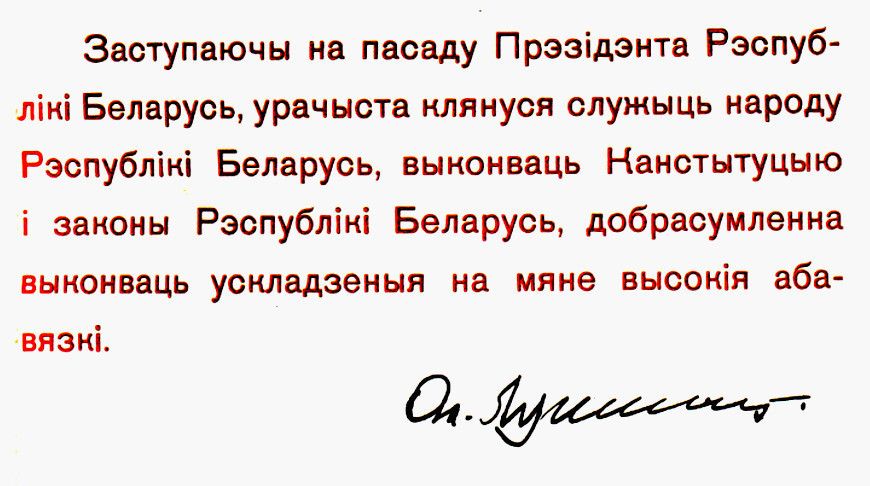
The first inauguration of the President of the Republic of Belarus took place on 20 July 1994. While taking the oath of office, Aleksandr Lukashenko said: “On assuming the office of the President of the Republic of Belarus, I solemnly swear to faithfully serve the people of the Republic of Belarus, fulfill the Constitution and laws of the Republic of Belarus, conscientiously fulfill the high obligations imposed on me.” That was the moment when the presidential power was established in Belarus, BELTA has learned.
- Share on Facebook
- Share on VK
- Share on Twitter
Concrete facts and true examples can speak a lot about Aleksandr Lukashenko. As it is noted in the Sermon on the Mount: “You will know them by their fruits. Grapes are not gathered from thorn bushes, nor figs from thistles, are they?” (Matthew 7:16). Aleksandr Lukashenko is as good as his words.
In France, for instance, it is considered bad manners to remind what a politician promised during the election campaign. In Belarus all the promises of the election campaign - to pull the country away from the brink of an abyss - were fulfilled and even overfulfilled.
In his inauguration speech Aleksandr Lukashenko said: “20 July 1994 - the day of the swearing-in of the first President of Belarus - should become the day of the end of confrontation in society and the first step towards the establishment of civil accord... The first President should and will rise above personal political interests, will be open to the closest cooperation with all political forces ready to work constructively for the good of Belarus.” Extending an open hand to both opponents and losers, the president-elect, the winner of the election recognized by the entire international community, spoke these words after Zenon Pozniak, the leader of what seemed to be the most powerful political force in Belarus at that time, stated: “The BPF will not cooperate with Lukashenko's government” (Zvyazda newspaper, issue No. 145 of 13 July 1994).
Zenon Pozniak - the man who portrayed himself as “the leader of the nation's revival” for more than five years – took lead only in Vileika (0.3% more votes than Lukashenko), Molodechno, Smorgon and Smorgon District, Lida, Ivye District and Ostrovets District after the first round of election. And did it with active administrative support. Vyacheslav Kebich “secretly” supported him, in opposition to Lukashenko.
Stanislav Shushkevich, the “destroyer of the USSR”, was ahead of other candidates only in one (!) district of the country. Vyacheslav Kebich narrowly won only in two districts of Minsk and three districts of the country's regions. The then acting prime minister with the inflated ego of a professional economist deflated as soon as he confronted with reality. With such results, they did not represent a real political force, but saw themselves as rulers of destinies. They turned out to be small-minded cunning rascals and very soon showed their true faces. Nevertheless, they did receive a generous political offer to cooperation from the president, the move which many took as a weakness of the new government. As it became clear with time, those many were mistaken. The president showed himself in the best light.
The incident in Liozno, where Lukashenko’s assassination attempt took place, can be cited as an illustrative example. Despite a preliminary agreement and two-hour waiting in the reception hall of the local executive committee, a representative of presidential candidate Aleksandr Lukashenko’s team was refused a permission for the candidate to hold a meeting with voters at the local club. The local authorities unexpectedly replaced the club with a cinema house as a place for the meeting. While putting up notices around the town, Aleksandr Lukashenko’s proxy noticed that he was followed by people who were tearing them down. He made an instant decision. He addressed the residents through a megaphone inviting them to come to the meeting.
The meeting with Aleksandr Lukashenko, hastily-arranged in the face of resistance from the local authorities, was a real success in the crowded cinema hall. People brought a lot of flowers to the meeting, thus responding to the pressure of the authorities.
The triumph was followed by a shooting on the road when Aleksandr Lukashenko was returning home. Perhaps it came as an attempt to take revenge for public success.
Aleksandr Lukashenko has always demonstrated highly efficient work, even when pressed for time and facing most challenging issues. Especially if these were the issues with many unknowns which required prompt solutions. It was not always clear how to cover this distance between idea and action. No one could boast successful practice and theory of withdrawal from the rigid system of the USSR centralized planning. Amid an aggressive environment and the absence of resources, the young president had to learn the science of management under both internal and external pressure.
Belarus met the challenge with its head high.
The German playwright and philosopher Friedrich von Schiller put forward a concept according to which a person could be both a patriot and a citizen of the world, and there would be no contradiction in this. How can this be realized? It is enough to develop one's own country and enhance interaction with other nations. It is enough to be friends, not allies against somebody. Unfortunately, friendship is a luxury that very few countries can afford nowadays. The Union State, CSTO, SCO or BRICS are great examples of true friendship and cooperation.
The first document Aleksandr Lukashenko signed after his inauguration was Presidential Decree No. 1 of 22 July 1994, “On the Appointment of Prime Minister of the Republic of Belarus”.
The candidates for the post of prime minister agreed upon with the Supreme Council, as well as the four deputy prime ministers proposed, were approved without objection.
The first appointments of the new government came as a surprise to many however.
On the same day, 22 July, a new branch of power was set up – Belarus President Administration (by Decree No. 6 of 22 July 1994). Its head was appointed by the president himself. Some other bodies of the new power, which were not specified in the Constitution, were set up as well (by Decree No. 16 of 2 August 1994 “On the Monitoring Service of the Belarus President Administration and the Committee on Combating Corruption in the Bodies of State Power.
In his inauguration speech, the president made an important point: “The only dictatorship that is possible in the country seeking to join the international community as an equal member... is the dictatorship of the law. Everyone must be equal before the law, before our Constitution, from a schoolchild to the president”. The Belarusian leader soon proved that he practiced what he preached.
In 1994, Batka showed that he was his own man. On 2 August 1994 he issued Presidential Decree No. 17 “On the suspension of Council of Ministers' Resolution No. 548 of 18 July 1994 [On approval of the procedure for providing government employees with preferential loans for construction (purchase) of houses (apartments)]”.
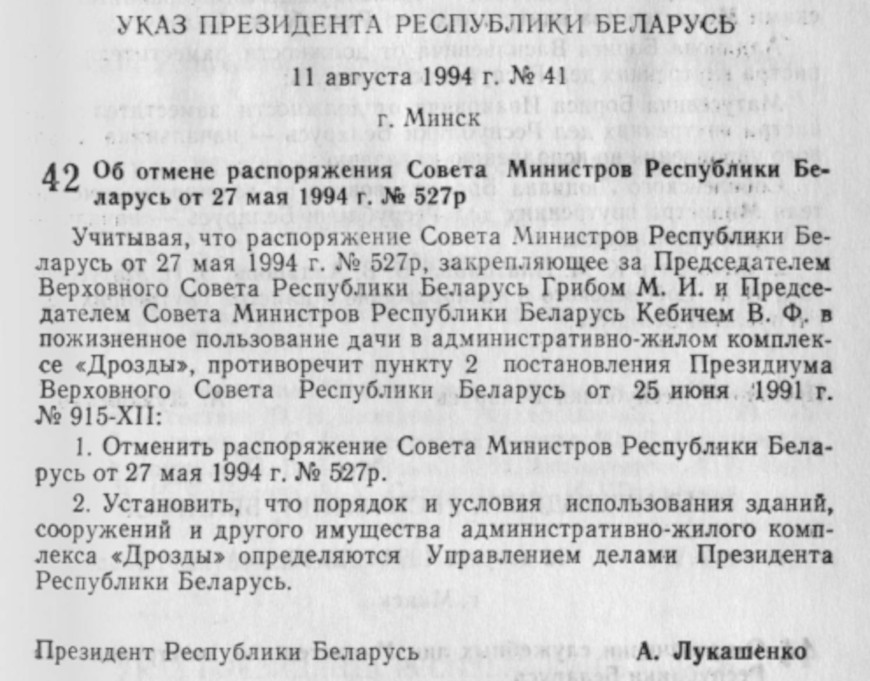
What was it about? After the Central Election Commission of the Republic of Belarus certified the election results and Aleksandr Lukashenko's victory, Vyacheslav Kebich issued an overcomplex but not well-developed resolution on preferential lending to civil servants. Thus, the president was caught between a rock and a hard place having to choose between two equally undesirable alternatives. If the president canceled the resolution, he would make civil servants dissatisfied; if not, he would fail to keep his election promise to the people, and the budget would not be able to handle such spending. Zugzwang?
The purpose of the resolution was to make people in power angry with the new president.
On the day this Byzantine resolution was rescinded, the president established the Control Service and the Anti-Corruption Committee under his Administration. He went even further than that. He passed the document “On reducing the staff of central government bodies, local executive and administrative bodies of the Republic of Belarus” (Decree No. 30 of 8 August 1994). The document sought to slash staff by 30%! The president was fully aware of the subsequent pushback, but he was not afraid of possible ramifications.
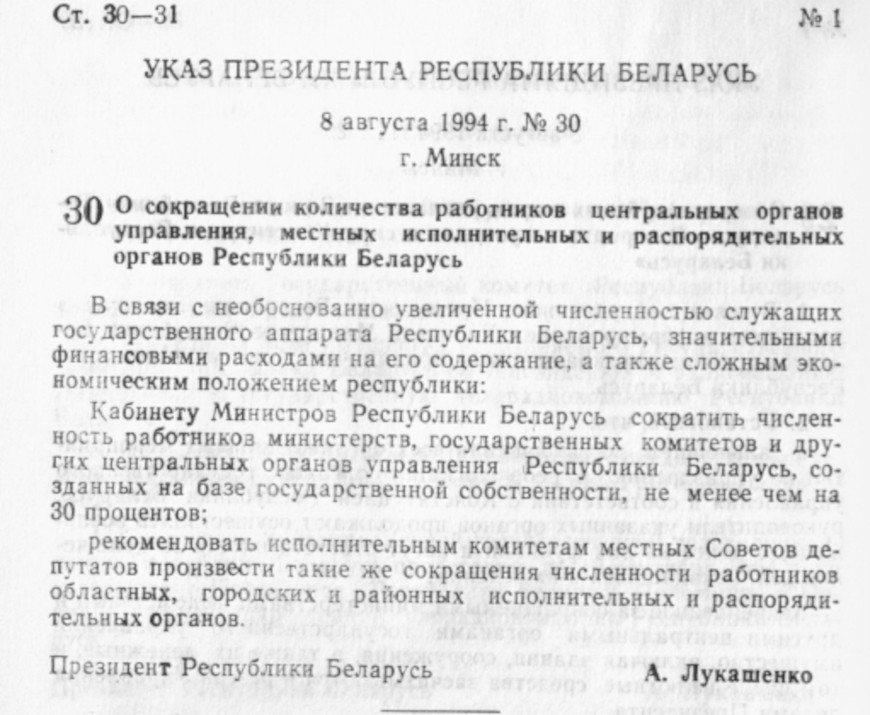
The head of state passed the document “On canceling Council of Ministers' Order No. 527r of 27 May 1994 [On allowing Chairman of the Supreme Council of the Republic of Belarus Mechislav Grib and Chairman of the Council of Ministers of the Republic of Belarus Vyacheslav Kebich to have dachas in the Drozdy complex for lifelong use]” (Decree No. 41 of 11 August 1994). Before running for president, Kebich got one house for himself and one for the incumbent Chairman of the Supreme Council Mechislav Grib, a police lieutenant general who received the lifelong right to this property less than six months into his tenure as chairman of the Supreme Council. This decision ran afoul of the effective legislation and amounted to corruption.
Just imagine what would have happened had this “parallel” team come to power. They would have pushed the country into the abyss of lawlessness and chaos. Ukraine would have paled in comparison.
The president prioritized factories and households alike (not everyone fully understood it at the time). The document “On payments for natural gas, electricity and heat energy” was passed (Decree No. 50 of 15 August 1994). Aleksandr Lukashenko was asserting himself as a person who was able to get to the core of the problem and solve it: “Given the critical situation with energy resources, especially natural gas, given delays of payments for gas, electricity and heat, heads of enterprises (associations) and organizations regardless of their form of ownership should bear personal responsibility ... When renewing contracts for energy resources with the heads of state enterprises (associations) and organizations, their payment record should be taken into account.”
Later on the following decision had to be made: “On concluding contracts with heads of state enterprises, associations, organizations and institutions” (Decree No. 82 of 1 September 1994). It caused enormous discontent in the “parallel world” of the opposition, among the “new” owners of the “appropriated” property and heated debate in the media. But the country benefited from this decision in the long run.
The foundation for the architecture of the new government system was laid by Presidential Decree No. 19 of 4 August 1994 “On the creation of the Belarus President Administration” and with the adoption of the Regulations on the Security Council of the Republic of Belarus (approved by Decree No. 24 of 5 August 1994).
Presidential decrees were passed so fast that the anniversary decree No. 100 was adopted routinely as early as 9 September 1994.
One hundred presidential decrees within a month and a half! The president delved into every aspect of the country's life down to the smallest detail.
Decree No. 200 of 13 November 1994 “On price regulations for certain food products and social security” became a milestone and a clear indicator where the president was taking the country.
Running the country was an extremely complicated and challenging task. “Theorists” and the “parallel world” preferred to discuss irrelevant problems and argue fruitlessly without taking a deep dive into essential matters. They could not strategize and plan, calculate potential consequences of their decisions, and often acted mala fide.
The president has been bearing the responsibility for the country for 30 years now. He is a visionary and an effective manager. He sets very long-term, ambitious and complex goals and achieves them. Today's decisions are elements of a long-term plan to build a knowledge nation.
We will discuss this in detail in the book Superposition. “Parallel Worlds” based on BelTA's unique photo exhibition that tells viewers about two worlds: the world of the state – that of creation and development, and the world of the opposition – that of destruction and degradation. We will tell you how the president, defying the odds, held out and turned the Republic of Belarus into the nation it is today.




